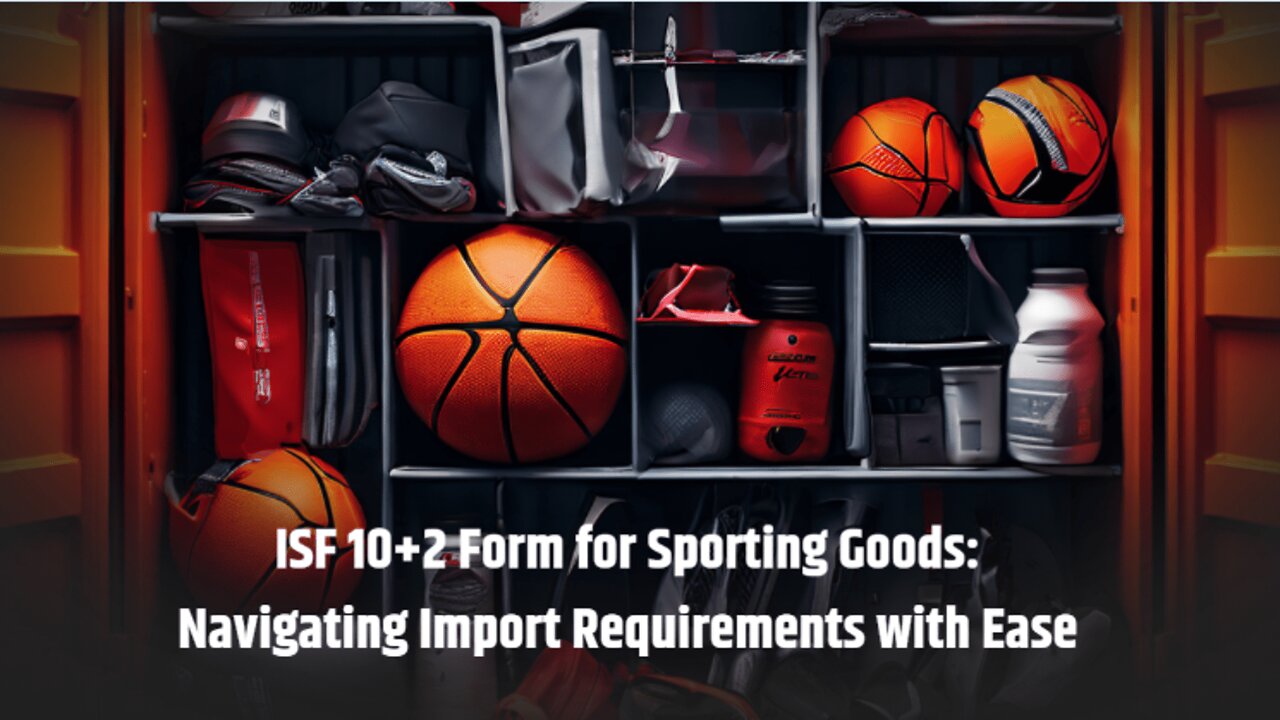Premium Only Content

Importing Sporting Goods: The Importance of ISF 10 2 Form and Customs Bonds
ISF Template | 562-453-7357 | [email protected] | www.isftemplate.com
The ISF 10+2 form for sporting goods is an important requirement for importers. It focuses on specific details related to sporting goods shipments and allows US Customs and Border Protection (CBP) to assess any potential security risks. Importers need to provide information such as Harmonized Tariff Schedule (HTS) codes, manufacturer or supplier information, country of origin, and a detailed description of the goods. It is also important to include the bill of lading or other required shipment identifiers.
Importing sporting goods also requires having an active customs bond in place. A customs bond serves as a financial guarantee to ensure the payment of duties, taxes, and other fees to CBP. Different types of customs bonds are available, such as single-entry bonds and continuous bonds that cover multiple shipments within a specific period.
Working with a customs brokerage firm can be beneficial for importers. Customs brokers are licensed professionals who specialize in facilitating the import and export process. They have expertise in customs regulations, tariff classifications, and documentation requirements. They can assist with tasks like completing the ISF filing accurately, calculating duties and taxes, navigating complex customs regulations, and communicating with CBP on behalf of the importer.
Partnering with a customs broker can save time, reduce the risk of penalties or delays, and ensure compliance with all legal and regulatory requirements. It is crucial for importers to stay informed and follow the proper procedures to successfully import sporting goods.
00:58- Importer Security Filing
01:38- Why is the ISF 10+2 form important in the case of sporting goods?
03:19- Customs brokers
04:07- Conclusion
-
 18:43
18:43
Nikko Ortiz
1 day agoWorst Karen Internet Clips...
76.3K12 -
 8:39
8:39
MetatronHistory
1 day agoWhy Did We Switch From Bronze to Iron in Classical Antiquity?
4.21K -
 11:01
11:01
MattMorseTV
14 hours ago $10.07 earnedEU caught in $140,000,000 SCANDAL.
14.2K48 -
 1:44:46
1:44:46
PandaSub2000
10 hours agoUltimate Chicken Horse | ULTRA BEST AT GAMES (HD Edited Replay)
4.66K -
 1:47:16
1:47:16
omarelattar
2 days agoTroy Eckard Shares His Rags to Riches Story
6.4K -
 26:18
26:18
GritsGG
14 hours agoHow to Activate Heat Map & Find Self Revives On Warzone!
4.79K -
 29:01
29:01
The Pascal Show
1 day ago $8.54 earnedRUNNING SCARED! Candace Owens DESTROYS TPUSA! Are They Backing Out?!
39.6K49 -
 24:45
24:45
Blabbering Collector
1 day agoUnboxing The 2025 Diagon Alley Advent Calendar By Carat Shop | Harry Potter
5.77K -
 0:43
0:43
Gaming on Rumble
1 day ago $5.65 earnedLvl UP (Raids)
38.9K2 -
 19:07
19:07
MetatronGaming
1 day agoWe need to find a way out NOW!
5.88K